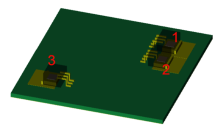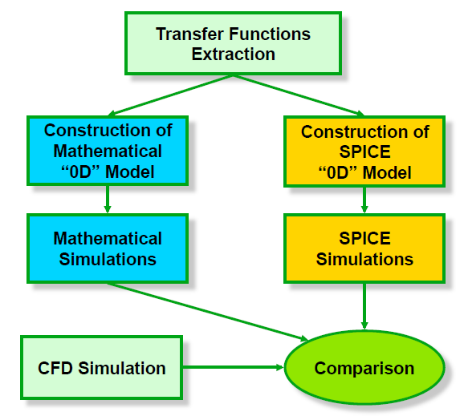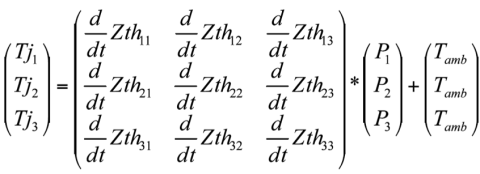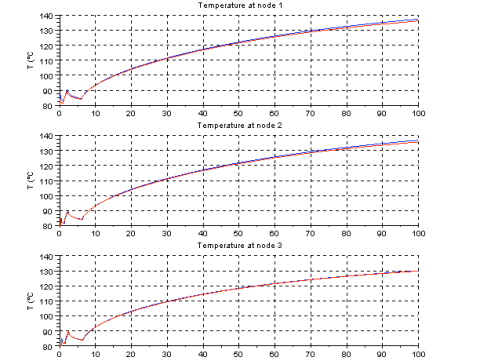Thermal pre-dimensioning of electronics
As it as been presented at our user conference ScilabTEC, Valeo is using Scilab for early stages pre-dimensionning of electronic systems, basing its approach on mathematical methodologies (modeling with thermal impedance).
Challenge
Several tools / Several Teams
Mix Between several Tools:
- CFD Simulations or Tests for transfer functions extraction
- Mathematical (Scilab) and/or SPICE models for temperature prediction
Collaboration by several teams:
- Thermal CFD Simulation expert for transfer function extraction
- Electronic Designer to run various configuration or complex profiles
- Improve communication between the two teams for equipment optimization
Solution
Transfer Function Extraction
Depending on the project status, different approaches are relevant:
- For Project in design phase
- CFD Simulation model is build
- Number of run is equal to number of power injection point (m)
- These are transient runs with step injected power (relatively simple)
- For Project with existing hardware
- CFD simulation or
- Measurements using thermal sensor, IR camera, …
Temperature environment and Injected power during CFD simulation or test shall be close to real configuration (linearization at operating conditions).
“0D” Model Construction
The Model chosen depends on the method used for temperature profiles calculation. Two options are possible:
- Temperature predicted using mathematical software (Scilab)
Pure mathematical model needed - Temperature predicted using SPICE simulation software
Assembly of RC network circuit needed
Use of SPICE simulation needs to add a calculation step to define the equivalent RC networks with potential additional errors
Two models are always generated to identify amount or errors produced at each step (due to system linearization then to RC model generation).
Here is the expression of the mathematical “0D” model:
Results
In the end the mathematical approach allows much faster modeling and processing, giving accurate results (see graph attached), appropriate for early stages decision strategies.



